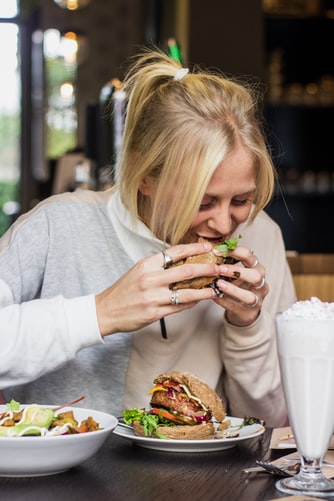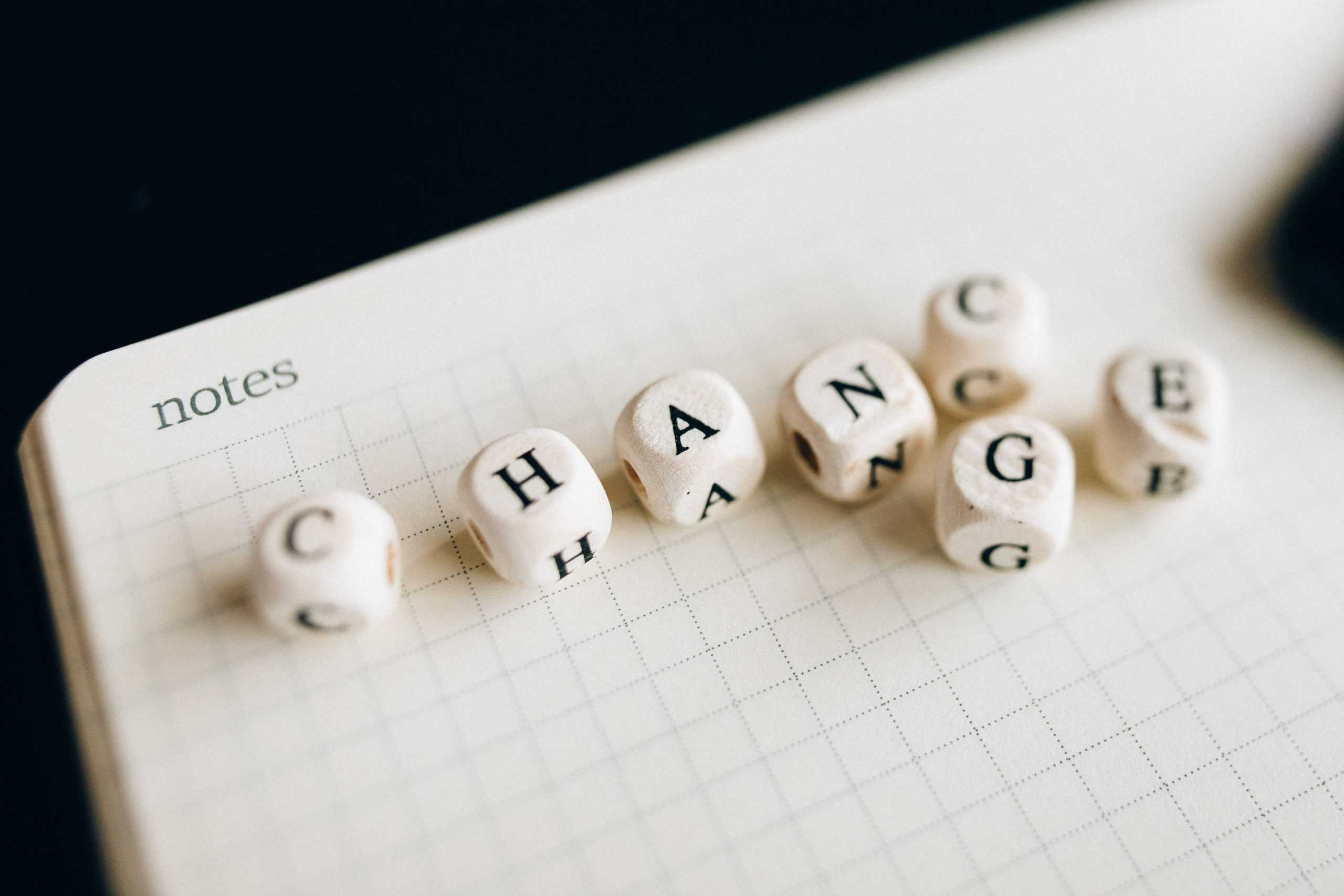In the early years of my recovery from anorexia nervosa (long before I knew I’d ever look back and speak about them as “the early years”) my parents took me to see a Dietitian (that was the first time I discovered such a job existed).
She provided them and me with a “meal plan” for weight gain and with it an implied “recovery”.
Rather than giving me a specific, set in stone “eat this and not that” she spent time educating me on the 5 different food groups (grains, meat and alternatives, dairy and alternatives, vegetables and fruits plus fats and “fun foods”) and how many serves to eat from each group a day.
I remember the first morning my mum handed me a bowl of cooked rolled oats with all the toppings.
Sitting here as I write these words today, I have no recollection of what I’d eaten at any point in my life for breakfast before this bowl was put in front of me.
It was huge.
I was terrified.
I didn’t know what was wrong with me.
I trusted her and I ate it.
That day and the next and the next and the next and it got easier. Never easy, never natural and never instigated by me but it got easier. The bowl began to not look so big or take me so long to eat (I also remember my dad suggesting that we eat with a tablespoon instead of a teaspoon and when I took that advice – which wasn’t immediately – it sped up my eating time again. The smallest, simplest thing I’d never have considered myself).
My mum put the “meal plan” on the fridge and I remember the shame I felt knowing my sisters would see it.
She and I ticked off the serves from each food group; daily.
I followed that diet plan religiously.
Obsessively.
I wanted to eat so much more.
I wanted to eat so much less.
I wanted to eat nothing.
I didn’t know what was wrong with me.
Unfortunately, the meal plan wasn’t the ticket to cure we’d all hoped, and expected.
I can’t remember all the reasons I’d backslide, slip up, lapse, relapse and “fail” – there were many – but overall, through it all there was the underlying theme that my trust in what to do was placed outside of myself.
I didn’t know how.
I didn’t know how to eat.
The instinctual, innate, subconscious ability all human beings are born with which guides us on how to feed themselves was gone.
It was as though I never had it, so complete and pervasive was my experience of the mix of emptiness, self-loathing, shame, gut-wrenching fear and confusion which filled the place it should have been.
I was constantly seeking outside permission (although I wouldn’t have known it at the time because to me that was “normal”) for everything. Including what, when, with who and how much to eat.
I hadn’t yet developed a true sense of self, confidence, certainty, a purpose or meaning to my existence and it tore me up inside in a way I can no longer conjure.
At 14 years old I had substantial time off school. I felt like the most alone person in the world.
There was an unshakable knowing that I was different.
I was constantly cold, my hair fell out by the handfuls when I’d eventually brave the shower and washed it, I spent most of my time staring into space, exercising or neurotically studying.
I wanted to know everything.
I wanted answers to questions I now know can’t be answered but more importantly I now don’t mind that I don’t have the answers.
Life’s not any better when you have the answers.
Anyway, that’s a story for another time because as much as food will help, it won’t get you all the way and with the majority of the people I work with now in facilitating them to overcome eating disorders of all descriptions we’re aiming for complete freedom forever, every time. Such a freedom always, in every case and without exception takes more than addressing what you’re eating. But for now, back to that old, original meal plan because there is value in sharing these things and up until this point I haven’t.
So, below is a sample of what I ate in an average day during my early years of recovery.
An Example Day of Eating Following the Adapted Meal Guide
Breakfast:
- ½ cup raw oats cooked on 1 cup full cream milk with full cream milk powder
With
- 1.5 cup full cream milk with 3 scoops Sustagen
- ½ cup full cream yoghurt
- Chopped fresh fruit
- Chopped dried fruit (eg. dates, sultanas, dried apricots)
- Handful of mixed nuts
- 1tsp honey
Snack:
Large handful of nuts and dried fruit and 50-100g chocolate.
Morning Tea:
- Smoothie made with
- 1 cup full cream milk
- 2tbsp full cream yoghurt
- 3 scoops Sustagen
- 1tbsp peanut butter
- 1 banana
- ½ tsp honey
With
- Two slices toast with 2tbsp almond butter, 1 banana, ½ tsp honey and 3tbsp cream OR 4 chocolate chip biscuits OR large muffin.
Lunch:
- 2-4 slices bread OR 2 cups pasta or 1 cup rice/quinoa
With
- 2 large eggs OR tin of sardines OR tin of tuna in oil
- 50-100g full fat cheese
- 1 avocado
- ½ cup fried vegetables (mushroom/tomato/baby spinach etc)
- Small handful of nuts
- Hummus
- Pesto
- 3 Scoops Sustagen in 1 cup full cream milk
- Fruit (eg. ½-1 cup grapes)
Afternoon Tea:
- 1 cup full fat yoghurt with
- Large handful mixed nuts
- Chopped chocolate
- ½ tsp honey
- Fresh fruit
Or
- 3-4 doughnuts and a milkshake
Snack:
Magnum ice-cream or large snickers bar
Dinner:
- 250g Salmon with
- 1 ½ cups roast vegetables (sweet potato, potato, pumpkin etc)
- Turkish bread with butter and garlic
- ½ cup steamed green vegetables (eg. broccoli)
- 2tbsp sour cream
- Large slice of cheese
- Olive oil dressing
Dessert:
- Large serve tapioca pudding/brownie/cake/biscuits with ice-cream/chocolate mousse/custard/cream
With
- Hot chocolate made with 1 cup full cream milk, melted chocolate, 2tbsp butter, 2tbsp full cream milk powder/3 scoops Sustagen
Did this meal plan cure me? No.
Did it buy me the time (15yrs!) I otherwise may not have had the chance to live and to eventually learn what I really needed to learn to overcome the eating disorder forever? Likely.
Overall, there are 5 Main Points I’d Like You to Takeaway from My Sharing This
And they are…
- Eating in recovery is not “normal”

I remember an insatiable desire to fit in.
To just be normal!
I remember many times questioning myself and eating less than I knew I “should” in order to fit in.
Out at café’s or restaurants with friends or at dinner parties and even at Christmas lunch with my family I remember holding back. I remember watching others for examples of how much was the “right” amount or type of food to eat.
I remember the feeling of wanting to peel my skin off when people pointed out how much they’d eaten and how full they were or how much they regretted it when I’d eaten a genuine 5x what they’d eaten.
I remember the confusion.
I remember the shame.
I remember not knowing what was wrong with me.
In eating disorder recovery, it is entirely useless to look towards others for examples of what to eat. You are, quite simply not in the same position. You need an amount of food that is likely far in excess of what anyone else in your life is eating. Give up the need to be “normal”. You’re not. In any case in order to gain freedom from the eating disorder and any kind of semblance of a meaningful and truly fulfilling life what you eat matters a great deal to your health, happiness and life experience whereas what others eat does not impact you or change what your body requires or would run optimally on in the slightest. Which leads us to the next point…
2. Your body’s need for food will outweigh your physical capacity to eat food

In recovery from a restrictive eating disorder your body’s need for nutrition (for repair, maintenance and growth) will outweigh your physical ability to consume levels of foods containing that nutrition.
When you make the decision to truly let go and trust in your body, you will eat beyond satiety. Which is of course normal in the context of just being a healthy, fully functioning human being without an eating disorder also but the level of desire and ability to eat is different to say someone indulging at an all you can eat buffet to someone in recovery from an eating disorder.
You will eat beyond levels you’ve ever seen or known.
You will be in pain physically while mentally wanting more.
I remember how confusing this was.
I remember the shame I felt.
I remember the anguish.
I remember not knowing what was wrong with me.
This can be one of those moments you choose to backdown or one of those moments where everything changes.
If you go with this “extreme hunger” (hyperphagia or hypermetabolism) you will get where you want to go or where you may not even yet know or believe you can go. If you don’t you will forever stay stuck in the cycle.
There is no third option.
Which leads us to the next point…
3. You aren’t “done” when you’re “weight restored” or reach a “healthy” weight.

Your need to eat high energy, high nutrient dense foods, regularly and consistently doesn’t go away when you reach a “healthy” weight.
You must feast. The reasons why are many (if you want more information on this click these links to read my earlier blog posts Extreme Hunger in Recovery: What You Need to Know and What it Takes: Eating For Recovery) but in a nutshell two of the most important are;
- To repair and then maintain your body physically. There is an unbelievable amount of energy that must be invested into repairing all the damage causes by malnutrition, starvation and overexercising and this can only happen has what it needs to survive in the now plus some stores.
- To let your brain know you are out of “famine”. To let your mind and body, know that there is not a scarcity of food anymore because when there is a food scarcity people with a predisposition towards anorexia nervosa are always going to eat less. If we all ate all the food at once we’d have not survived this long as a species. The tactic is to draw it out and make the limited reserves last as long as possible.
In recovery you need to eat abundantly with no restriction because whether the restriction is real (famine) or perceived (unconscious restriction through fear) your body does not know the difference and will act as if it is true.
In hindsight I really think real, full and lasting recovery takes a period of absolute feast rather than a controlled and gradual increase in food intake if not for any other reason than to break the absolute rigid mindset around food (arguably the whole point of doing recovery, right?)
A meal plan may give you relief and take some of the pressure off making hard decisions in the moment but ultimately it is not a means by which to live your life. Which brings us to the next point…
4. You can’t skip the eating part

As much as food has become the unfortunate scapegoat for all the things you can’t otherwise cope with in your life (past, present, future, real and perceived) there is no way to truly learn to cope with those things until you take care of the food.
You can do this first, before you even begin to look at any of the more painful or confronting areas of your life, your incompetence’s or skills you need to build in order to take leadership of your life or you can do the food simultaneously as you develop the skills and resources you need. Of course, in practice you’ll find there will be substantial overlap but the latter will not fully come without the food and indeed the food will not fully come without the latter.
When it feels like everything, start with something.
Begin.
Please consider giving eating the prime, most important position in your life.
Allow it to become as important a commitment as a full-time job.
You don’t have to believe it will make a difference in order to do it.
Just know that from a place of starvation and malnutrition you will never be able to consider the big picture and you will forever stay stuck in the microdetail of the here and now. Part of the reason all the things you want in life or can’t imagine experiencing in life feel so overwhelming and dauting to think about is the starvation and malnourishment (irrespective of your weight). There is a great book called “Scarcity” which looks at the changes in human brain function and what we are capable of thinking, feeling, focusing on and doing when we have abundance or scarcity (of for example time, money or food) and it should come as no surprise that when we have a scarcity of food it is all we are able to think about. At incredible cost to not just ourselves but also society. I truly believe society is losing some of its greatest minds to eating disorders.
As I make certain shines through in all the work, I do the food alone is not enough. Please do get help alongside this to learn what you need to learn so that the food just isn’t a problem anymore but while you’re at it please do eat and at least give yourself a chance to be able to do that work.
Which leads us to the fifth and final takeaway point for today…
5. This is not your meal plan

Last of all the above meal plan outline is not your meal plan.
What do I mean by this? I mean please do not eat this or adjust what you are currently eating based on this in the belief that it will cure you.
Please see a health and nutrition professional (aka a Dietitian who specialises in working with people to help them recover from eating disorders) for your own unique, individual, one of a kind guidance on what to eat. Even more importantly get the help you need to begin to develop your own internal wisdom and guidance on what to eat and to trust and act upon this easily, effortlessly, naturally once again.
Your body knows in a way no professional, expert, coach, book, blog, Instagram influence ever could.
There are many people who can help you develop that internal trust once again (there are many people who can’t) but they cannot do it for you.
If you think about it, it would be ridiculous to think otherwise because your body is there with you 24/7.
Your body has been there with you 24/7 while you did all those things you’ve done and had done to you, all those things you’ve seen and felt and it will be there with you 24/7 for however many years, months, weeks, days or hours you have left on this planet to do all the things you are yet to do. It is for this reason that any time you choose to work with a professional to facilitate you to heal your relationship with food and/or your body while it may involve some education (really, it should after all they are the professional) above all it must be highly focused on increasingly putting the power and trust back in your hands so you can simply get over the problem and move on with your life.
Free.
There you have it a quick, rough example of what I ate in a day in the life of my recovery journey based on a meal plan I was given when I was around 14yrs old.
I want to take the time to reiterate again that it is just that an example. I don’t share this as a guide or even a suggestion of what you should or need to eat for your recovery and I can honestly tell you from the bottom of my heart that the only time things really changed for me was when I let go of all the structure, all the rules and just ate.
When I ate to my body’s needs the breakfast, snacks, lunch, snacks, dinner, snacks rolled into one.
My day was one continuous meal. No joke.
I was perpetually bloated, often nauseated and uncomfortable in every sense of the term. I alternated between constipation and diarrhoea, self-disgust, confusion, hopelessness, pride and possibility.
There wasn’t a lot of fun in there, there wasn’t a lot of trust and there was no knowing or believing that everything was going to turn out ok.
I didn’t recover because I was ready, I didn’t recover because some unspecified period of time had passed, I didn’t recover because I hung in there or just “kept swimming”. I recovered because I took action.
I took action when it hurt, when it sucked, when everything in my environment was against me.
I took action when it felt wrong to do so.
I also will always recognise that I recovered because I found the help that could help me.
Recovery always and ultimately comes from the person and no one can do it for you, but I abundantly recognise that had I not found the help I did, had I not taken that desperate chance on something my science nerd brain did not “believe” in (hypnosis) my future may have turned out very differently or I may not have had a future at all. Which is why I am a big proponent of the never, ever give up mantra, but I am, in the same breath not a pusher for doing more of the same in the hopes that it will suddenly work. By all means give things a chance and don’t give up immediately on those things you try because you can learn from everything but also if you’re not making the progress you’d like please know you can give something else a try.
Don’t make the judgement beforehand that it’s not going to work. Commit, do and then decide.
I recovered because I surrendered to the unknown and the uncertainties and decided to simply give life a go, imperfections, joys, heartbreaks and all and I wouldn’t trade the far from perfect life I now live, the far from perfect person I now am for anything.
This is my wish for you.
With my whole heart I trust you found this information useful and inspiring.

Become Great. Live Great.
Bonnie.



